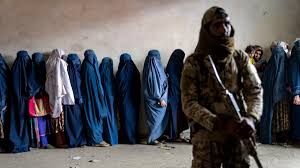
Introduction: The Silent Struggle for Women’s Rights
Table of Contents
In Afghanistan, the struggle for women’s rights has been a contentious and complex issue, deeply intertwined with the nation’s history, culture, and ongoing conflicts. While much of the focus has been on the challenges faced by women, another significant aspect often overlooked is the role of Afghan men who support women’s rights but feel unable to express their views publicly. These men, who quietly advocate for gender equality, face a unique set of challenges in a society where patriarchal norms and fear of retribution often silence their voices.
The Cultural and Social Context
Afghanistan is a country where traditional values and norms continue to dominate many aspects of life. Patriarchy is deeply ingrained in Afghan society, and gender roles are often strictly defined. Men are typically seen as the protectors and providers, while women are expected to fulfill roles as homemakers and caregivers. In this context, advocating for women’s rights can be perceived as challenging these traditional values, which can lead to social ostracism or even violent backlash.
Afghan men For many Afghan men, the fear of being labeled as “unmanly” or “Westernized” for supporting women’s rights is a powerful deterrent. In a society where honor and reputation are of paramount importance, openly supporting gender equality can be seen as a betrayal of cultural values. This fear is compounded by the potential consequences, ranging from verbal abuse and social isolation to physical threats and violence. As a result, many men who believe in women’s rights choose to remain silent, feeling trapped between their personal beliefs and societal expectations.
The Influence of Religion and Tradition
Islam plays a central role in Afghan society, and interpretations of religious texts often shape attitudes towards gender roles and women’s rights. While Islam, in its essence, advocates for the dignity and respect of all individuals, including women, the interpretation and implementation of these principles vary widely. In some cases, conservative interpretations of Islam have been used to justify the subjugation of women and to discourage any discussion of gender equality.
Many Afghan men who support women’s rights are deeply religious and believe that Islam supports gender justice. However, they find it difficult to voice their opinions in a society where conservative religious leaders hold significant sway. These men may fear being accused of blasphemy or of undermining religious values, which can have severe consequences in a conservative society like Afghanistan.
The Impact of War and Conflict
Decades of war and conflict have left deep scars on Afghan society, exacerbating existing social and cultural tensions. The Taliban’s rise to power in the 1990s and their subsequent rule had a profound impact on women’s rights, as the regime imposed strict restrictions on women’s freedom and mobility. The Taliban’s fall in 2001 brought some hope for change, but the resurgence of the group in recent years has once again cast a shadow over the future of women’s rights in the country.
For Afghan men who support gender equality, the ongoing conflict presents a significant barrier to speaking out. The fear of reprisals from militant groups, including the Taliban, is very real. These groups often target individuals who are perceived as challenging their ideology, and advocating for women’s rights can be seen as a direct challenge to their authority. In this environment of fear and uncertainty, many men who believe in gender equality choose to remain silent for the sake of their safety and the safety of their families.
The Role of Education and Awareness
Education has a crucial role to play in changing attitudes towards women’s rights in Afghanistan. While access to education has improved in recent years, particularly in urban areas, there is still a long way to go in terms of challenging deeply held beliefs about gender roles. For many Afghan men, exposure to education and new ideas has led to a greater awareness of the importance of women’s rights and gender equality.
However, the impact of education is often limited by the prevailing social and cultural norms. Men who have been educated in more progressive environments may struggle to reconcile their beliefs with the expectations of their families and communities. The pressure to conform to traditional norms can be overwhelming, leading many educated men to remain silent on issues of gender equality, despite their personal beliefs.
The Potential for Change
Afghan men Despite the challenges, there is potential for change in Afghanistan, and many Afghan men are beginning to find ways to support women’s rights, albeit quietly. Some men are working within their communities to promote education for girls, recognizing that access to education is a critical step towards gender equality. Others are challenging harmful practices, such as child marriage, by raising awareness of the negative impact these practices have on both women and society as a whole.
In some cases, Afghan men have found ways to support women’s rights through anonymous channels, such as social media, where they can express their views without fear of immediate retribution. These men are using their voices to challenge the status quo and to advocate for a more just and equitable society. However, the fear of backlash remains a significant barrier to more widespread and open advocacy.
Conclusion: The Need for Collective Courage
Afghan men The struggle for women’s rights in Afghanistan is not just a fight for women; it is a fight that requires the support and involvement of men as well. Many Afghan men believe in gender equality and want to see a society where women are treated with respect and dignity. However, the fear of social ostracism, religious condemnation, and violent retribution often silences their voices.
For real change to occur, there needs to be a collective effort to create an environment where men feel safe and empowered to speak out in support of women’s rights. This requires challenging the cultural and social norms that perpetuate gender inequality and providing education and awareness that highlights the importance of gender justice.







